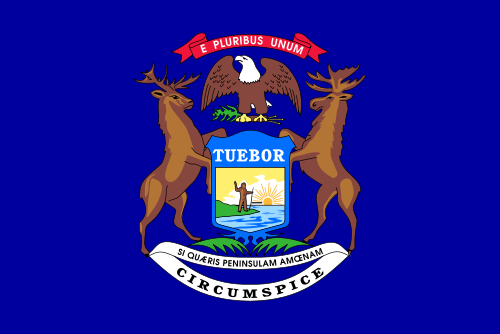Tag: attorney general
-
24 Republican attorneys general oppose California’s electric truck regulation

Twenty-four Republican attorneys general sent a letter on Sept. 16 to the Environmental Protection Agency (EPA) asking the agency to block the California Air Resources Board’s (CARB) Advanced Clean Fleets regulation, which would require fleet owners operating in the state to use electric trucks. The attorneys general argue California’s regulation impacts national transportation industries and…
-
Two U.S. Representatives are running for Attorney General of North Carolina

Jeff Jackson (D) and Dan Bishop (R) are running in the general election for Attorney General of North Carolina on November 5, 2024. Incumbent Josh Stein (D) is running for Governor of North Carolina. Western Carolina University politics professor Chris Cooper said, “I think it’s going to probably be the nastiest AG race that we’ve…
-
John B. McCuskey (R) defeated Mike Stuart (R) in the Republican primary for Attorney General of West Virginia

John B. McCuskey (R) won the Republican primary for West Virginia Attorney General on May 14, 2024. McCuskey defeated Mike Stuart (R) 60.2% to 39.8%. Incumbent Patrick Morrisey (R) ran for governor, leaving the office open. Both McCuskey and Stuart ran on their record in elected office. Both candidates said they would prioritize suing the…
-
John B. McCuskey (R) and Mike Stuart (R) are running in the Republican primary for West Virginia Attorney General

John B. McCuskey (R) and Mike Stuart (R) are running in the Republican primary for West Virginia Attorney General on May 14, 2024. Incumbent Patrick Morrisey (R) is running for governor, leaving the office open. Both McCuskey and Stuart are running on their record in elected office. Both candidates say they will prioritize suing the…
-
Satana Deberry (D), Tim Dunn (D), and Jeff Jackson (D) are running in the Democratic primary for North Carolina Attorney General

Satana Deberry (D), Tim Dunn (D), and Jeff Jackson (D) are running in the Democratic Party primary for Attorney General of North Carolina on March 5, 2024. Deberry and Jackson have led in pre-election polls and media attention. Incumbent Josh Stein (D) is running for governor rather than seeking re-election. Deberry is the state’s 16th…
-
Democratic attorneys general sue Biden administration over FDA abortion pill regulation

A group of 12 Democratic state attorneys general filed a lawsuit in the United States District Court for the Eastern District of Washington against the Food and Drug Administration (FDA) on Feb. 23, 2023, arguing that the agency’s regulations on the abortion-inducing drug mifepristone violate state sovereignty by limiting the ability of states to provide…
-
Four candidates running for Michigan attorney general

Incumbent Dana Nessel (D), Matthew DePerno (R), Joe McHugh (L), and Gerald T. Van Sickle (U.S. Taxpayers Party) are running for Michigan attorney general on Nov. 8, 2022. Nessel was elected in 2018, defeating Tom Leonard (R) 49.0% to 46.3%. Before Nessel’s election, a Republican had held the office since 2002. Detroit Free Press‘ Dave…
-
Incumbent Aaron Ford (D) and Sigal Chattah (R) running for Nevada Attorney General

Incumbent Aaron D. Ford (D) and Sigal Chattah (R) are running in the November 8, 2022, general election for Nevada Attorney General. John T. Kennedy (L) unofficially withdrew from the race in September 2022. In September 2022, Sabato’s Crystal Ball released an analysis of state attorney general election competitiveness. Nevada’s attorney general election was rated…
-
Six states sue Biden administration over student loan forgiveness plan

Six states filed a joint lawsuit against the Biden administration on September 29 to block the federal government’s plan to forgive up to $20,000 of federal student loans per person. The states allege the administration overstepped its executive authority and was “not remotely tailored to address the effects of the pandemic on federal student loan…
-
Incumbent Josh Kaul (D) and Eric Toney (R) running for Wisconsin attorney general

Incumbent Josh Kaul (D) and Eric Toney (R) are running for Wisconsin attorney general on Nov. 8, 2022. Kaul was elected in 2018, defeating incumbent Brad Schimel (R) 49.4% to 48.8%. Before Kaul took office, a Republican had held the office since 2007. Sabato’s Crystal Ball senior columnist Louis Jacobson named this election as one of…

